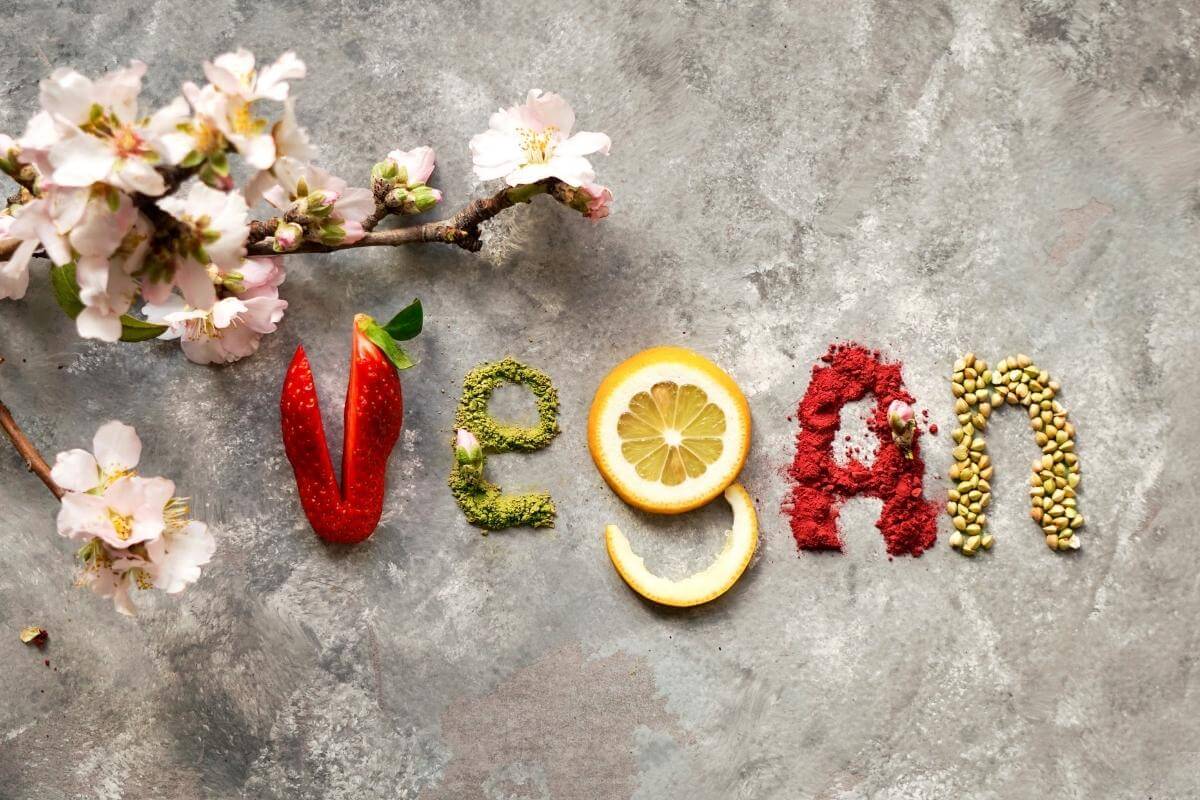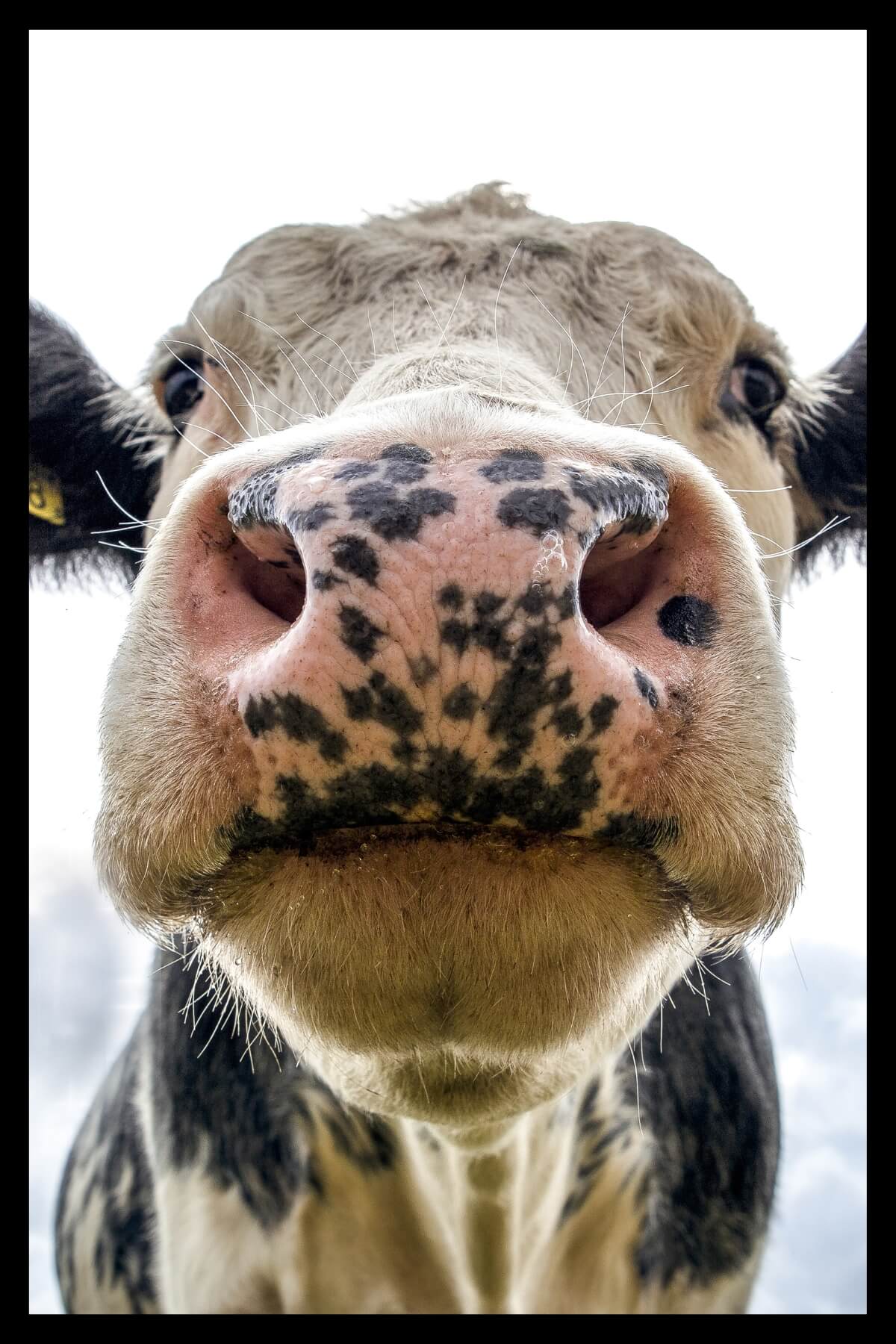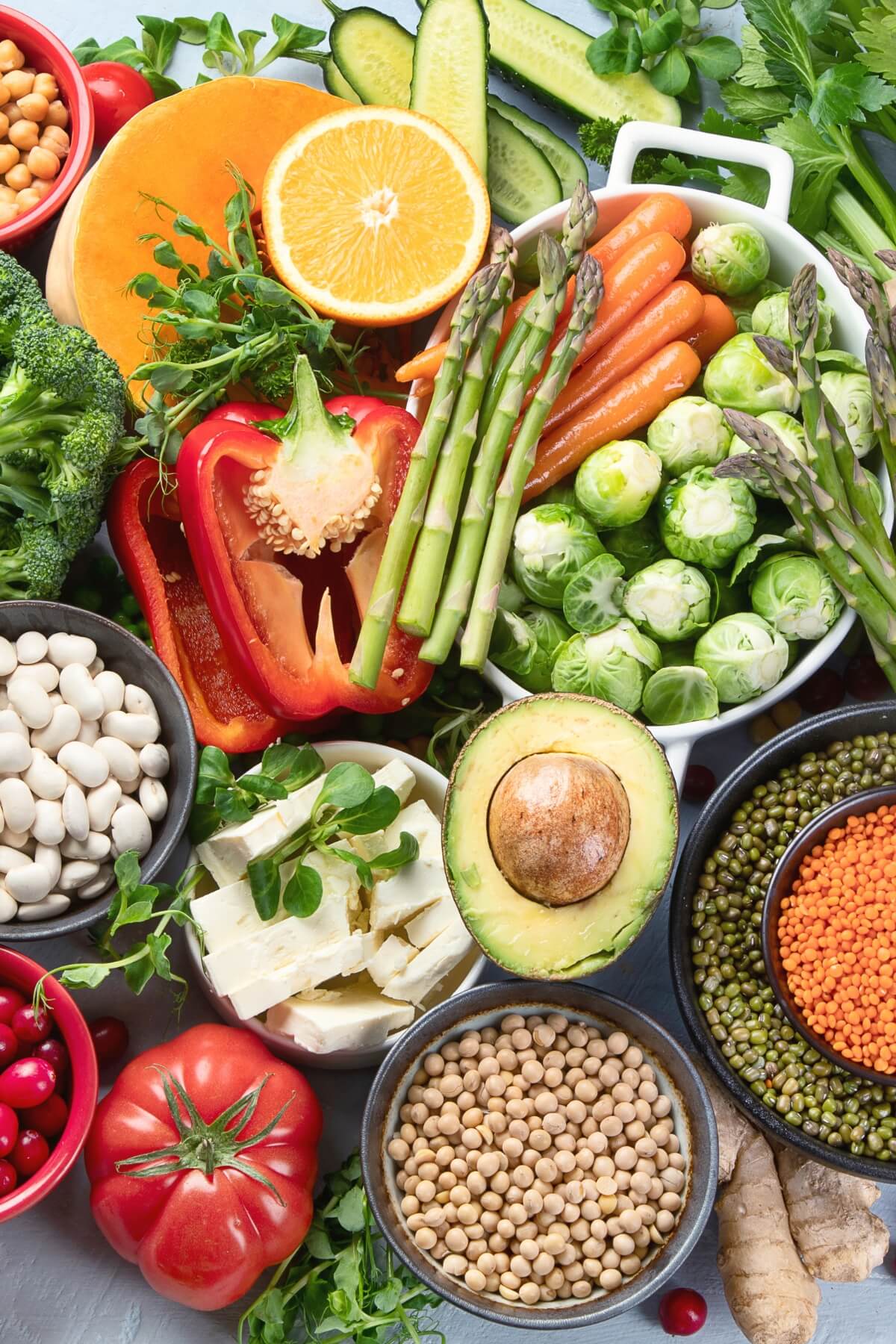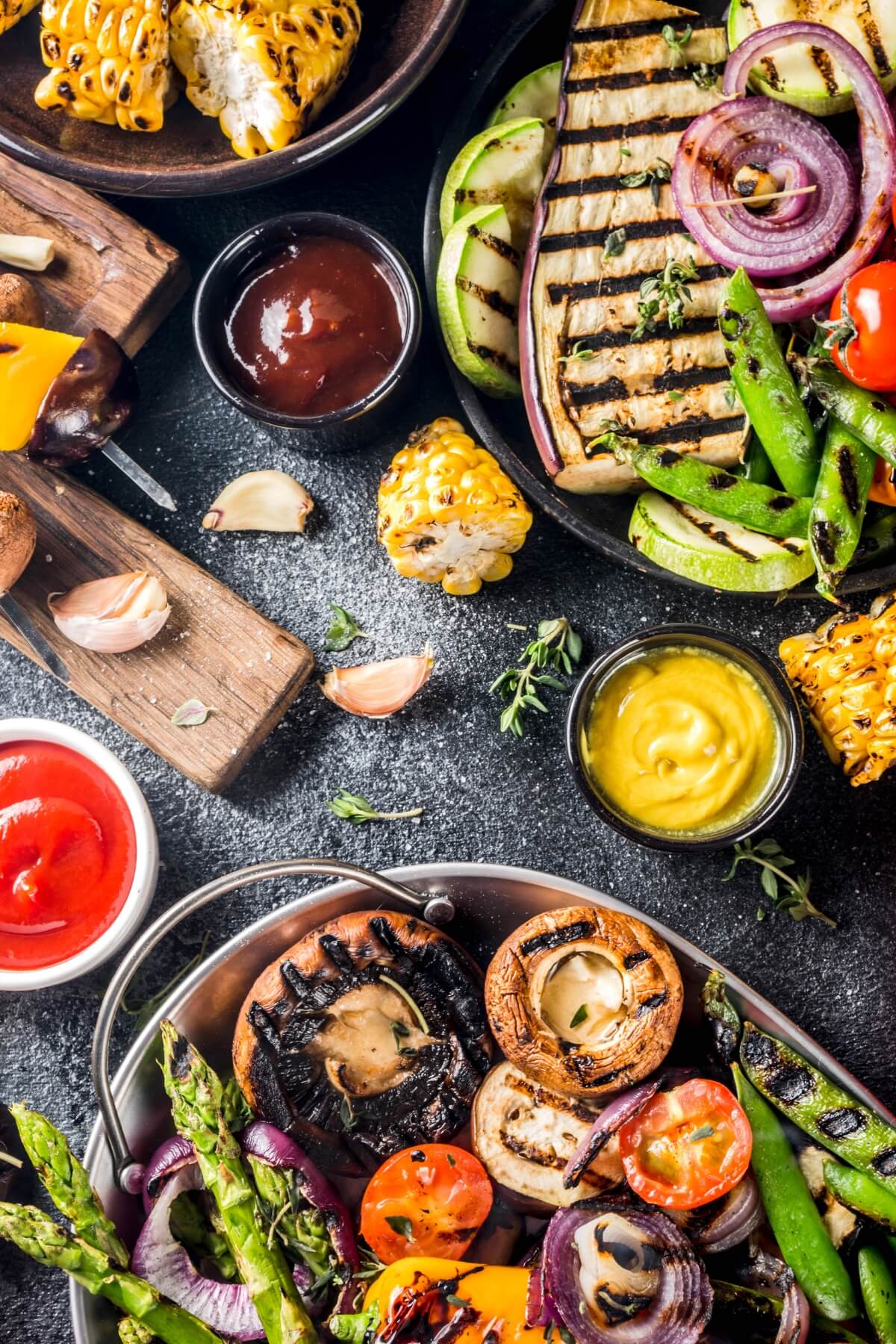Have you ever wondered what is veganism all about? There are so many terms like vegan, vegetarian, plant-based, pescatarian, flexitarian, and lacto-ovo vegetarian it's hard to understand them all, so let's take a look at what it means to be vegan.

Want to save this recipe?
Enter your email below and get it sent straight to your inbox. Plus, get more amazing vegan recipes that will satisfy your cravings!
Jump to:
- The Vegan Society's definition of veganism
- Veganism is an ethical lifestyle choice, not a diet!
- Veganism is...
- Veganism is not...
- Categories of Veganism
- Why do people choose to be vegan?
- Can you be a pure vegan?
- Questions to ask yourself when going vegan
- Find a balance that is right for you!
- How to eat vegan
As someone who has been vegan for over 2 decades, I know how confusing these terms can be! There are many gray areas and people interpret the term differently. I can't even tell you how many times people have said to me, "I'm vegan too now! I only eat chicken and fish." I don't blame them for being confused, there are so many ideas about what veganism is.
The Vegan Society's definition of veganism
"A philosophy and way of living which seeks to exclude - as far as possible and practical - all forms of exploitation of and cruelty to animals for food, clothing, or other purposes."
So let's clear this up ...
Veganism is an ethical lifestyle choice, not a diet!
Yes, vegans avoid foods that are derived from animals and eat foods free of meat, dairy, eggs, and honey. However, being vegan also means that you do not support industries that cause harm or suffering to any animal. Because of this, vegans also do not purchase leather, wool, silk, or down. They don't purchase cleaning and beauty products like soaps, lotions, or makeup that contain or have been tested on animals. So, being vegan is not just about what you eat!

Veganism is...
- an ethical philosophy of not causing harm or suffering to any animal.
- the act of deliberately not financially supporting an industry that contributes to the harm of any animal.
- a moral choice to better the lives of all animals, humans, and the environment through purchasing decisions.
- the act of boycotting companies that profit from the suffering of animals.
- Viewing animals as soulful beings that deserve a life free from harm, suffering, and abuse, and not as a commodity for humans to profit.
Veganism is not...
- A diet.
- Another way to lose weight.
- Eating only healthy food.
- A religion.
- A radical lifestyle.
- Being "plant-based."
Categories of Veganism
Dietary Vegan - This refers to people who are "strict vegetarians" who do not consume any animal products. (Sometimes these people will still wear wool or leather).
Ethical Vegan - These people reject using animals as a commodity and avoid harming animals in any way and may choose to not visit zoos, attend the circus, or purchase a pet from a breeder.
Environmental Vegan - People who avoid animal products due to the environmental effects of the animal industry. These vegans are motivated by reducing their environmental footprint. They may also avoid using plastic or making unnecessary purchases.
Plant-Based - People who eat a plant-based diet are probably eating close to a vegan diet, but they are doing it for health reasons more than for ethical ones. Followers of a plant-based diet usually only eat "healthy," whole, unprocessed foods. For example, a vegan may eat Oreos because they do not contain any animal ingredients, but someone following a plant-based diet would not since they are highly processed.

Why do people choose to be vegan?
There are four main reasons why people choose to be vegan.
- For the animals.
- For the environment.
- For human suffering associated with the animal industry.
- For their health.
For most people, their motivation to maintain a vegan lifestyle is not just one thing, but a combination of these core beliefs and values. Vegans are trying to make good choices for themselves, those around them, the environment, and their health. However, there are moral dilemmas that arise when living in our world.
Can you be a pure vegan?
Many people are able to live a lifestyle that causes minimal harm to animals, but no one can be a "pure vegan" all of the time. You will need to make choices about where are those lines going to be drawn for yourself and what choices you can afford.
Questions to ask yourself when going vegan
- What are you going to do with the leather, silk, wool, makeup, or cleaning supplies you already own before making the transition?
- What if someone gives you a gift or hand-me-down clothes that aren't vegan?
- What if you or your child gets sick and you have to take a medicine that is derived from animals?
- Will you kill bugs that are on your body or in your home?
- Do you consider plants grown with the help of pesticides to still be vegan?
These are questions that you have to make logical and mindful decisions about for yourself and your family. These are questions that naysayers frequently ask to try to "get you" and prove that it's stupid to be vegan or that being vegan can't be done. These are also dilemmas that vegans tend to argue about among themselves causing the larger picture to get forgotten.
Find a balance that is right for you!
Because you are living on this earth, insects will die from accidentally stepping on them as you walk down the street, but this is not cause to give up efforts to reduce your contribution to animal suffering.
Being vegan means that you continually make the best choices that you can to aid in the welfare of all animals. Any steps made by you and those around you toward reducing the suffering of others are positive ones!
Remember, it's not about being perfect! The definition itself, states "as far as possible and practical." So do what is possible and practical for you and your family.

How to eat vegan
Eating vegan is not as hard as you may think! Check out my vegan recipes that will give you all of the flavors you are craving without any animal products!
You can still enjoy things like vegan cheeses, faux meats, and delicious vegan desserts. If you are new to eating vegan, check out all of my recipes for quick and easy vegan meals. Simply eating a few vegan meals a week can make a big difference in the lives of animals and our environment.


Leave a Reply